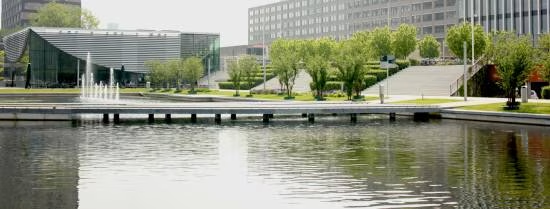On March 3, the EUR Sustainability Program and the DIT platform hosted the second edition of Let’s Talk Sustainability focused on Mobility. In January 2022, the EUR issued the new business travel policy for employees. It is a first important step towards the goal of carbon neutrality by 2024, but it has brought up questions on our travelling and commuting policy. Some interesting suggestions on how EUR could approach the mobility topic were brought to the table. Prof. Giuliano Mingardo, senior researcher of Urban and Transport Economics at Erasmus UPT, moderated the event and introduced our speakers.
Thea Hilhorst: The latest report of the UN Environment Assembly speaks clearly. If we do not change our behaviour, the consequences will be irreversible.
Professor of Humanitarian Studies at ISS, Thea Hilhorst published an open letter in 2019 urging universities to take action to limit flying and promote more sustainable travel policies. As environmental degradation is reaching a point of no return, we should limit journeys by plane to the bare minimum. Thea describes behavioural change as a four-step process. First, people should be motived and experience the urgency of the new behaviour, then given the right facilities to start adopting it and be encouraged to keep going. Issuing guidelines and policies is only the final step.
To encourage staff and student to come to campus by bike or public transport, we could provide more parking space for bikes and good accessibility by metro or tram. We should then be more flexible and encourage people to work from home or work flexible hours. At this stage a measure like the new business travel policy will be better understood and followed. Still, matters of great urgency sometimes require fast and bold solutions. Which is why a mixed approach is the most feasible approach, under these circumstances.
Hugo Houppermans: Making policies is not the solution. If we want people to adhere to them, we must ensure they live and not avoid the policies in question.
Hugo Houppermans, Director of the Coalitie Anders Reizen, helps companies to promote sustainable travel policies. From his experience, making clear why a new measure is needed is fundamental. Everyone must understand and embrace it, and there are innovative ways to do so. He gave us the example of Philips, which opted for gamification: all departments participate in a sustainability challenge four times a year, and this helps to create involvement. Setting up a CO2 budget at the beginning of the year is also a good strategy, and is more effective if teams make their own decisions about what to use their budget for.
Even if organisations are working on becoming more sustainable, reporting on emissions is a tricky process and comparing data is even more challenging. Plus, mobility is not part of reporting and data on international flights is often incomplete. While the change will not be immediate, more transparency will lead to an upgrade of the quality of reporting. This will ultimately allow to make relevant comparisons and see where and how to improve one’s performance. This goes for EUR too, which will soon publish its first sustainability report. There is always room for improvement and this improvement should be felt as a community effort.
Esther Salem: To encourage students to travel more sustainably, the university should raise awareness on the topic and think of alternative solutions to reduce commuting.
Esther Salem, master student in Global Business and Sustainability at RSM, joined the discussion to share a student perspective on the topic. Her interest on sustainable travel comes from her bachelor thesis on shared micromobility. Raising awareness is the key and organizing workshops or events to make students aware of our sustainability goals could make them feel more involved and willing to change their habits.
Cycling and public transport are the most sustainable options. However, not everyone loves biking, and the campus is not very well connected to the train stations. How to deal with these issues? As some students have showed to appreciate hybrid learning and teaching, why not allow them to stay at home and commute less to campus? Or what about being more flexible and making space available in the city centre, allowing students to follow classes and meet somewhere else than campus?
Working together will benefit us all
The discussion provided much food for thought and a key message. To meet our goals, our sustainability vision must be shared and discussed with our community with an open mind, but we must also make clear the urgency for action and the responsibility EUR as a university has. A collective effort would be even more effective. Working together with other universities and network associations such as Studenten voor Morgen, we could influence policies at a national level that would ultimately benefit us all.
- More information
Sustainability is one of the seven priorities of our university. Do you want to read more about how we contribute to a sustainable society?
The Design Impact Transition (DIT) Platform at Erasmus University empowers radically new ways to do research, education and engagement for a just and sustainable future. Read more about it here.
Learn more about our aim to reduce work towards a CO2 neutral campus in 2024.
Curious about the latest report of the UN Environment Assembly?
Send an email to sustainable@eur.nl if you’re excited about sustainable travel and want to take action to push this sustainability further. We can connect you to other changemakers at our university!
Don’t forget to mark our upcoming events in your calendar. We’re going offline for the next two times, so come and have a drink with us!
- 14 April 2022: Buying Better
- 9 June 2022: Energy use on campus
- Related content

